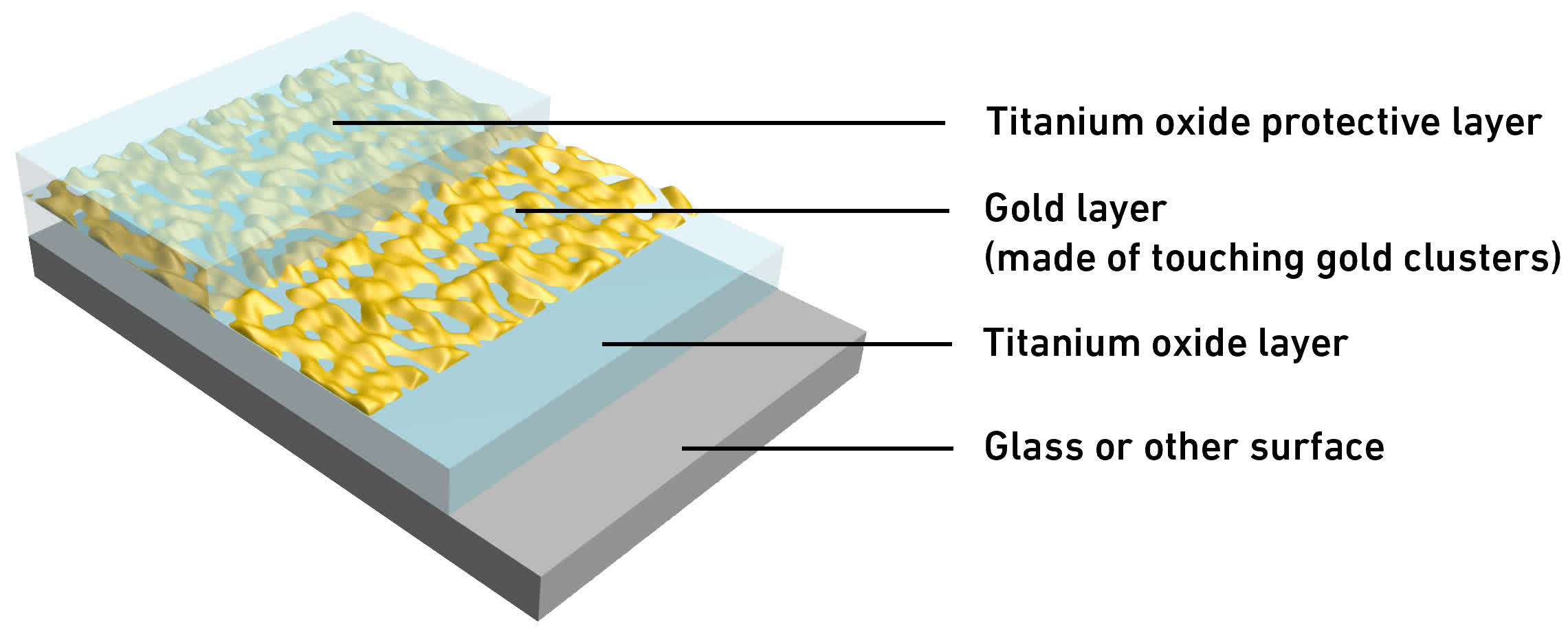In a nutshell: Researchers at ETH Zurich have spent the last few years perfecting a coating capable of passively preventing fogging on glass surfaces. Their latest iteration consists of extremely thin clusters of gold situated between ultrathin layers of titanium oxide on the top and bottom. The resulting coating is able to absorb a portion of infrared radiation from the Sun, which heats up the surface by as much as eight degrees Celsius and prevents condensation from forming.

It's similar to how the anti-fog system on a car's rear window works, but without the use of electric heating via wires.
The team published their first research paper on the topic back in 2019. Their revised coating is significantly thinner than what they previously shared, making it more transparent. It is also bendable, enhancing its versatility.

Gold is an expensive material but so little of it is needed for the coating that it won't make application cost-prohibitive. According to the team, the tri-layer coating measures just 10 nanometers thick. For comparison, a typical gold leaf or foil is about 12 times thicker. The coating is fabricated using chemical vapor deposition in a cleanroom.
The gold clusters in the middle of the titanium oxide sandwich do touch each other, but only minimally. That means that in the absence of sunlight, electricity could be used to heat the coating if needed. Titanium oxide acts as an insulating material, and the top layer protects the gold clusters from wear.
Obvious applications include eyewear and automotive windshields, but alternative use cases could include things like windows, mirrors and optical sensors. Notably, while the coated surface will heat up, the material prevents radiation from reaching the inside (of a car or building, for example) so they'd heat up even less than they would without the coating.
ETH Zurich has applied for a patent on the material. Additional experiments will help the researchers determine if other metals can perform equally as well or better than gold. Their latest findings have been published in the journal Nature Nanotechnology.
Image credit: Jamie Street
https://www.techspot.com/news/96940-researchers-develop-nano-thin-gold-coating-prevent-glass.html